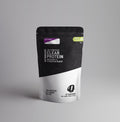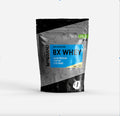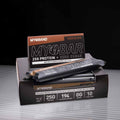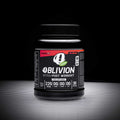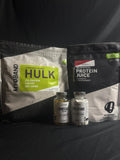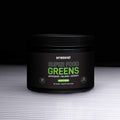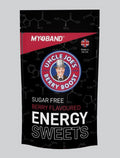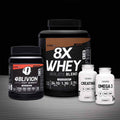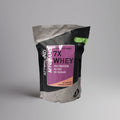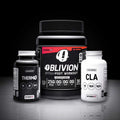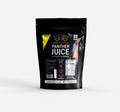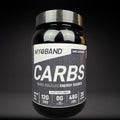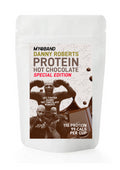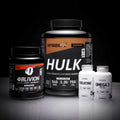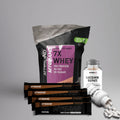This Is What You Should Be Eating Every Day To Reach Your Nutritional Needs
Posted by PROPROTEIN LTD ADMIN

It almost goes without saying that it’s important to ensure you’re meeting all of your nutritional needs on a daily basis but sometimes this is easier said than done. There can often be confusion around what exactly this entails so Myo-Band have decided to collate all this information in one place.
Although most people have similar dietary needs there are also some differences. Everyone should make sure their diet is filled with fruit, vegetables, whole grains, legumes and nuts and should limit their sodium, sugar and saturated fat intake too. This is where the similarities end as when it comes to individual nutrients, there are many differences, through activity levels, clinical differences, sex, age and even geography! Which we will only touch on the more general details in this blog.
When preparing a meal, it is important that everyone thinks about filling it with something from the following groups: Fruits and Vegetables, Grains and potatoes, Dairy/ Calcium rich food, Healthy fats, Proteins and finally any Discretional calories. Snacks are a great way to fill in fruits and whole grains you might have missed during these meals.
NECESSARY FOOD GROUPS
Fruits and vegetables
We all need to eat diets rich in fruit and vegetables every day with the aim of filling up a quarter of our plates with fruit and another quarter with vegetables during meals. Try to mix up the kind of vegetables you eat so as to add variety to your diet and eat the whole fruit, not juice. Avoid vegetables cooked in fat, like fried zucchini or onion rings.
Protein
Protein is a vital macronutrient needed to help build muscle and repair tissue, it should make up a quarter of your meal. There are a variety of foods that are great protein-rich options, such as seafood, lean meats, eggs, legumes, nuts, seeds, and soy products.
Protein powders and shakes are popular nutritional supplements as they can help make up for the protein you’re lacking in your diet and can assist with weight loss. Myo-Band has a variety of protein options, ranging from Whey Protein powder to Oblivion post-workout recovery protein drink.
Grains
The last quarter of your plate should be made up of grains. People who incorporate whole grains into their diet have a reduced risk of a variety of chronic diseases. They’re also a great source of nutrients, such as fibre, B vitamins and minerals.
Aim to make at least half your grains whole grains, such as brown rice, whole-wheat pasta, or whole-wheat bread.
Dairy and/or calcium rich food
People should consume three serves of dairy each day and luckily milk isn’t your only option to achieve this. Low-fat milk and low-fat cheese are both another great sources of calcium that can be included in your diet. If you don’t consume dairy luckily there are other easy-to-find sources of calcium. Some vegetables, such as leafy green vegetables, contain calcium, as does fortified soymilk, certain fish, grains, tofu and cabbage.
Healthy Fats
When cooking it is best to reach for oils that come from plants, like olive or avocado oil, instead of solid fats like butter, margarine, or coconut oil. This is because a lot of people eat too much-processed fat through packaged foods like chips or salad dressing, and not enough healthy fats.
Discretionary calories
These are the calories leftover from the above 5 groups and is usually around 200-300 calories. This group is normally the ‘treats’ you have daily such as sweets, puddings, chocolates and alcohol etc.
Necessary vitamins and minerals
Magnesium
Magnesium is important as it increases calcium absorption from the blood into the bone. Your body can’t utilise calcium without it. Good sources of magnesium include green vegetables such as broccoli, kale, celery and cucumber as well as food like halibut and seeds. Aim for 300mg/day for men and 270mg/day for women.
Vitamin D
Vitamin D is also crucial to the proper metabolism of calcium. As well as being able to absorb vitamin D from half an hour of direct sunlight, you can also get it from foods such as salmon, vitamin-D fortified milk and eggs. Aim for 5 micrograms a day.
Iron
Iron is important as it helps to carry oxygen in your blood while also maintaining healthy skin, hair and nails.
Some iron-rich foods are poultry, seafood, dried fruit and iron-fortified cereals, breads, and pastas. Leafy green vegetables and beans are also good sources of iron, but they’re not always absorbed as well by the body as iron that comes from animal sources. No matter whether you eat meat or not, you should be paying close attention to your iron levels. Aim for 6.7mg/day for men and 16.4mg/day for women.
Vitamin B
B vitamins play an important part in helping people maintain overall good health and wellbeing. Vitamin B has an impact on your energy levels, muscle tone, brain function and cell metabolism. It can be found in a variety of foods such as meat, eggs, whole grains, and fruits, and everyone should also be paying close attention to their vitamin B levels. A deficiency in it can lead to a variety of concerns, such as weakness, tiredness, constipation, gas and nerve problems.
Omega-3
Omega-3 fatty acids are considered a ‘good’ type of fat as they may help lower the risk of depression, heart disease, dementia and arthritis. It can be found in foods such as fish and flaxseed and can also be found in dietary supplements. Unfortunately, most people don’t consume enough omega-3 through their diets but we luckily sell an effective supplement. Our Lab Series Omega-3 helps to maintain healthy skin, hair, teeth and gums as well as healthy bones and joints. It also works to maintain a healthy immune system and cardiovascular system. Aim for at least 1g/day.
TAGS:
